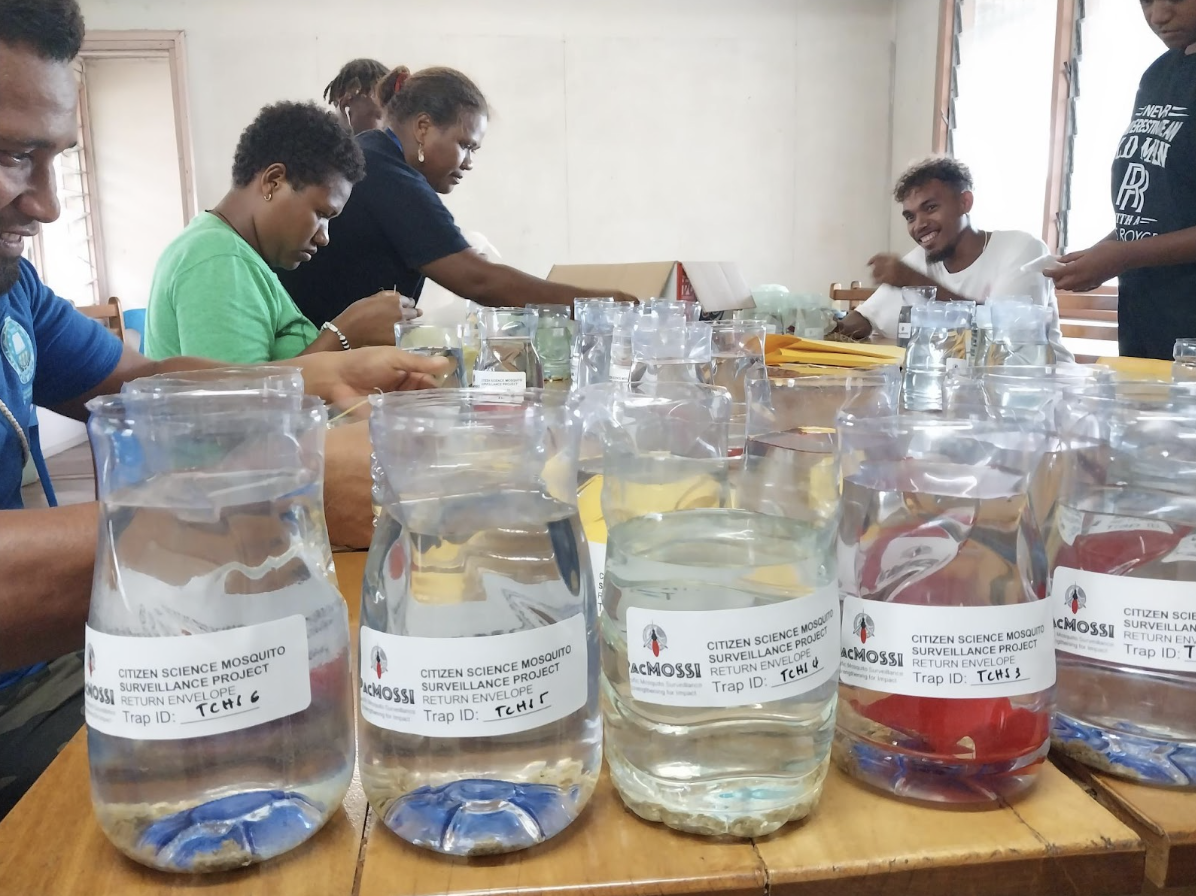Citizen Science.
Public participation and collaboration in scientific research can increase scientific knowledge.
Public participation and collaboration in scientific research can increase scientific knowledge.

Health authorities in Solomon Islands, Fiji, and Kiribati empowered their communities to design and implement citizen-led mosquito surveillance systems. Active participation came from school students, residents in rural and remote areas, and members of housing cooperatives.
The PacMOSSI initiative fostered a spirit of collaboration beyond its main goal of collecting mosquito data. It enabled health authorities to engage communities in meaningful two-way discussions about dengue risk and the necessary preventive measures, ensuring everyone felt included in the fight against mosquito-borne diseases.
“We found that the practical and creative nature of the PacMOSSI citizen science model was engaging, and that people were eager to be involved,” said Dr Hugo Bugoro from Solomon Islands National University.
More opportunities to start and develop a citizen science mosquito surveillance project will be available soon that will build on this success.
If you work in vector surveillance and control in the Pacific and are interested in learning more about citizen science, please get in touch with us through our contact page or at pacmossi@jcu.edu.au
For more information on Zika Mozzie Seeker, go to Metro South Health webpage